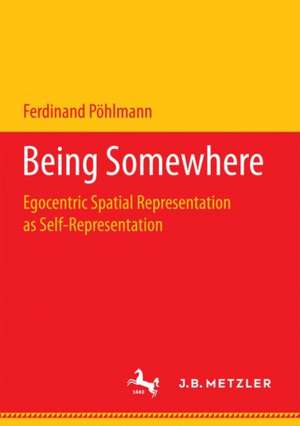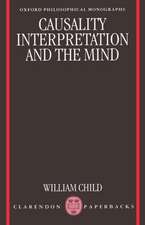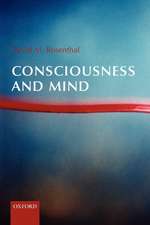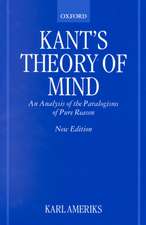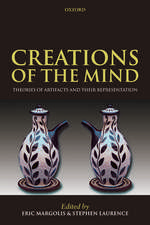Being Somewhere: Egocentric Spatial Representation as Self-Representation
Autor Ferdinand Pöhlmannen Limba Engleză Paperback – 22 mai 2017
Preț: 476.36 lei
Nou
Puncte Express: 715
Preț estimativ în valută:
91.19€ • 93.79$ • 75.65£
91.19€ • 93.79$ • 75.65£
Carte tipărită la comandă
Livrare economică 18 februarie-04 martie
Preluare comenzi: 021 569.72.76
Specificații
ISBN-13: 9783658180188
ISBN-10: 3658180188
Pagini: 269
Ilustrații: XII, 269 p.
Dimensiuni: 148 x 210 x 15 mm
Greutate: 0.34 kg
Ediția:1st ed. 2017
Editura: Springer Fachmedien Wiesbaden
Colecția J.B. Metzler
Locul publicării:Wiesbaden, Germany
ISBN-10: 3658180188
Pagini: 269
Ilustrații: XII, 269 p.
Dimensiuni: 148 x 210 x 15 mm
Greutate: 0.34 kg
Ediția:1st ed. 2017
Editura: Springer Fachmedien Wiesbaden
Colecția J.B. Metzler
Locul publicării:Wiesbaden, Germany
Cuprins
Basic Way of Representing Oneself between mere Reflexivity and Self-Consciousness.- A Sense of one’s Action Possibilities as the Constitutive Basis of Spatial Perception.- Discussed Approaches: Perry, Scheler, Merleau-Ponty, Gibson, Evans, Hurley, Noë, and Others.- Empirical Evidence: Inverted Vision Studies, Sensory Substitution Devices and Others.
Notă biografică
Ferdinand Pöhlmann received his doctorate from the Philosophy Department at Eberhard Karls Universität, Tübingen. He is currently working in the editorial office of a global publishing company in Stuttgart.
Textul de pe ultima copertă
Ferdinand Pöhlmann argues that a sense of one’s own basic abilities to move is a constitutive condition on the ability to perceive the world spatially. This constitutive relation explains why egocentric spatial representation is to be regarded as a kind of self-representation. In arguing for these claims, conceptual as well as empirical questions are discussed and an overview of accounts that take action as a constitutive condition on spatial representation is given. The picture that emerges is linked to the phenomenological (Scheler) as well as to the analytic (Evans) tradition in the Philosophy of Mind.
Contents
Target Groups
The Author
Ferdinand Pöhlmann received his doctorate from the Philosophy Department at Eberhard Karls Universität, Tübingen. He is currently working in the editorial office of a global publishing company in Stuttgart.
Contents
- Basic Way of Representing Oneself between mere Reflexivity and Self-Consciousness
- A Sense of one’s Action Possibilities as the Constitutive Basis of Spatial Perception
- Discussed Approaches: Perry, Scheler, Merleau-Ponty, Gibson, Evans, Hurley, Noë, and Others
- Empirical Evidence: Inverted Vision Studies, Sensory Substitution Devices and Others
Target Groups
- Graduate students and researchers in philosophy of mind, cognitive science and psychology
The Author
Ferdinand Pöhlmann received his doctorate from the Philosophy Department at Eberhard Karls Universität, Tübingen. He is currently working in the editorial office of a global publishing company in Stuttgart.
Caracteristici
A philosophical study Includes supplementary material: sn.pub/extras Includes supplementary material: sn.pub/extras
